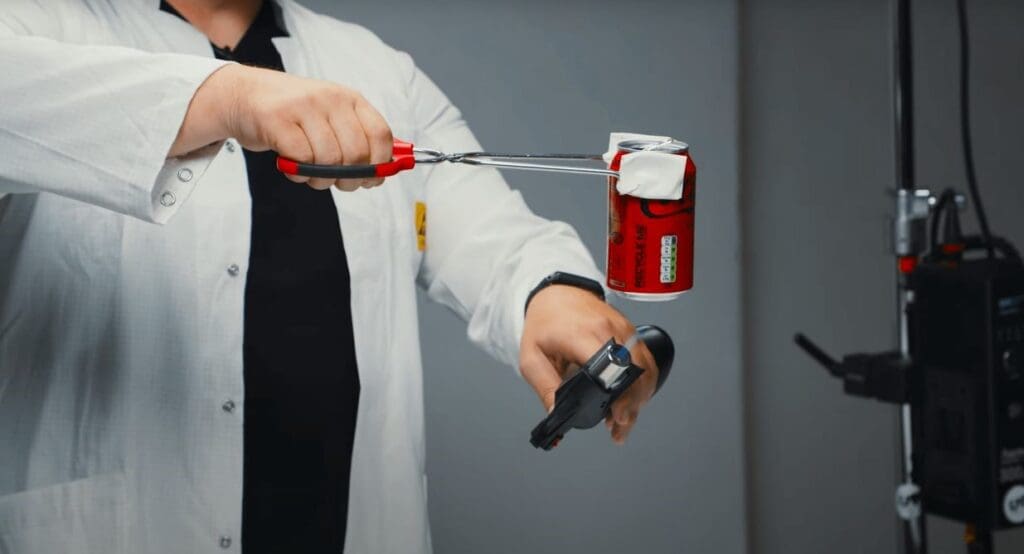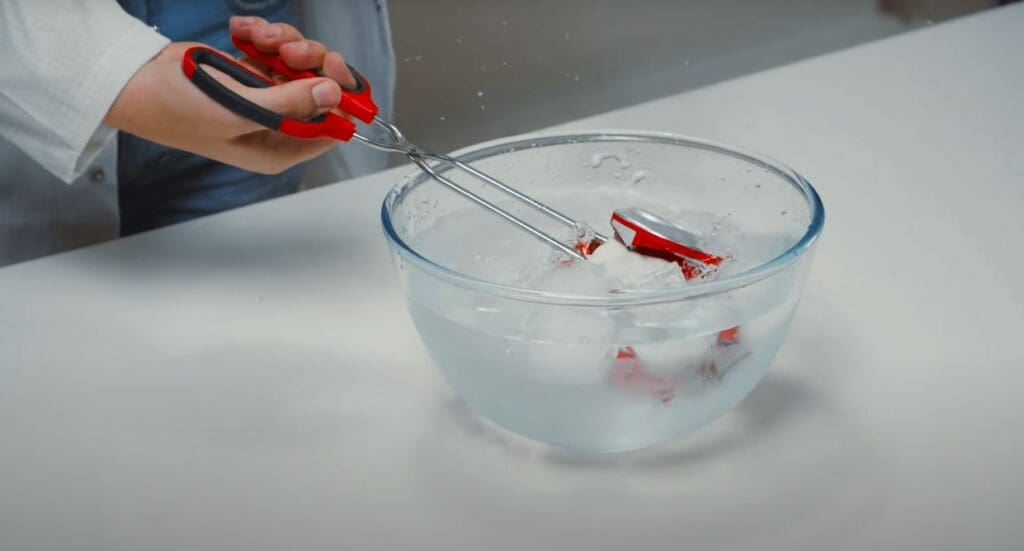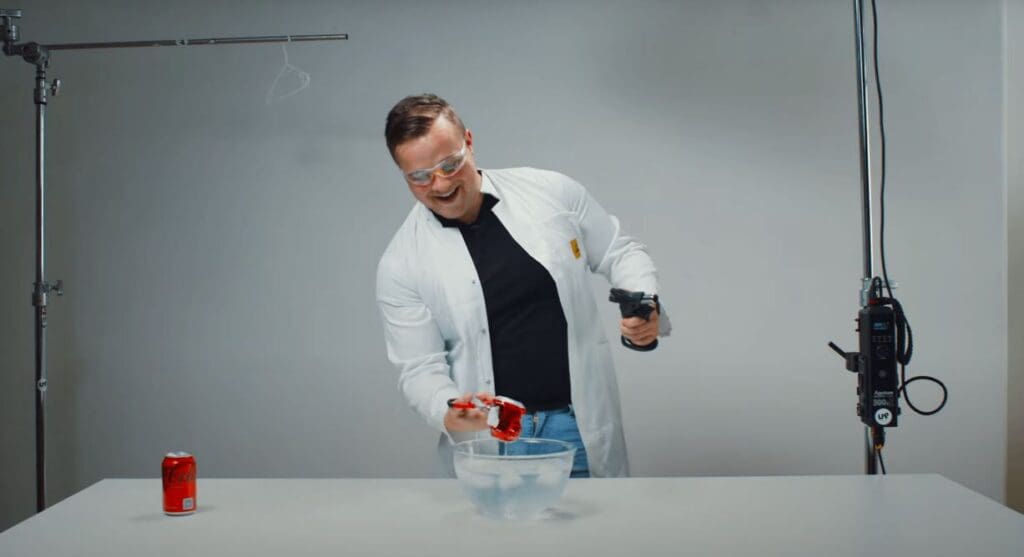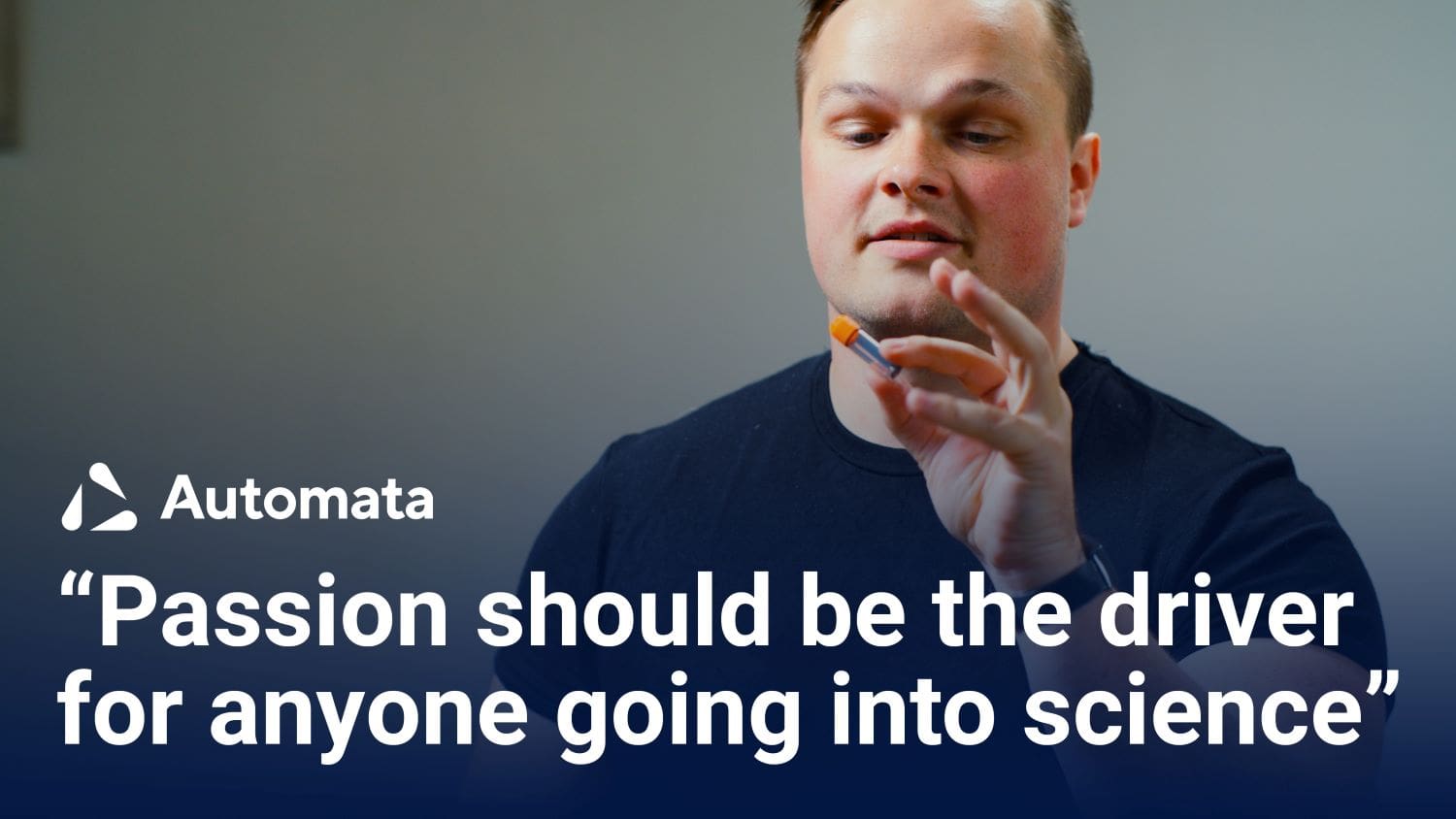Lab Lives: Beyond the Benchtop is our new series exploring the world of automation through the lens of the ex-scientists who now work here at Automata.
Episode one features Thaine Mayers, a biomedical science graduate from a drug discovery biopharma lab background.
We explore Thaine’s experience of life in the lab, why he made the move to field applications, and we discover whether he’s able to execute the first science experiment he ever saw at school!
Transcript
The first time I got interested in science was when I was in year seven. I was about 11, 12.
Mr. Dye was my teacher at the time, and he demonstrated how a Coke can, filled with a little bit of water, heated up and dropped in some ice-cold water, would implode. That was the first time that I was intrigued and interested in science. I should add, I’ve never actually done this experiment myself until today! (Watch to the end for the experiment)
My main driver for pursuing this career in the sciences was that I wanted to help people. Previously, I was doing rare diseases, usually with sufferers who were very young; even just being able to ease that suffering or those kinds of difficult times is just what I wanted to do.
I thought moving from academia and the learning side into industry would be very much a challenge, but a really fun intellectual challenge. In reality, it became a lot more monotonous and tedious.
I would be pipetting 100 microliters or so from a tiny little vial into the kind of microplates commonly used for PCR.
100 microliters would go into a tube of sometimes less than 10 microliters, which is very hard to actually see, and then I’d forget, missing samples half of the time. I got a lot better, but those mistakes cost time, and if it takes so long then it becomes a little bit draining.
I know some people who have left the industry because they don’t feel like they’re contributing – because they’re just a pipette monkey, as I used to call it, and I think sometimes the passion gets lost.
My motivation to move into the application of science came when I saw the capabilities of what robotics can do. If [scientists] get that time back, then [they] can then use their brain for the more demanding tasks, such as the data analysis, or that experiment they’ve put off for weeks because they had to get all of these samples out.
So, it’s not just about giving people back their time and essentially their brain, but that passion to actually do that work – that should be the fundamental driver of anyone wanting to go into science. I think that’s achievable with the collaboration of robotics and humans working side by side, allowing for development as well as scientific rigour to be carried out.
Watch the video to see whether Thaine was able to get the Coke can to implode…



